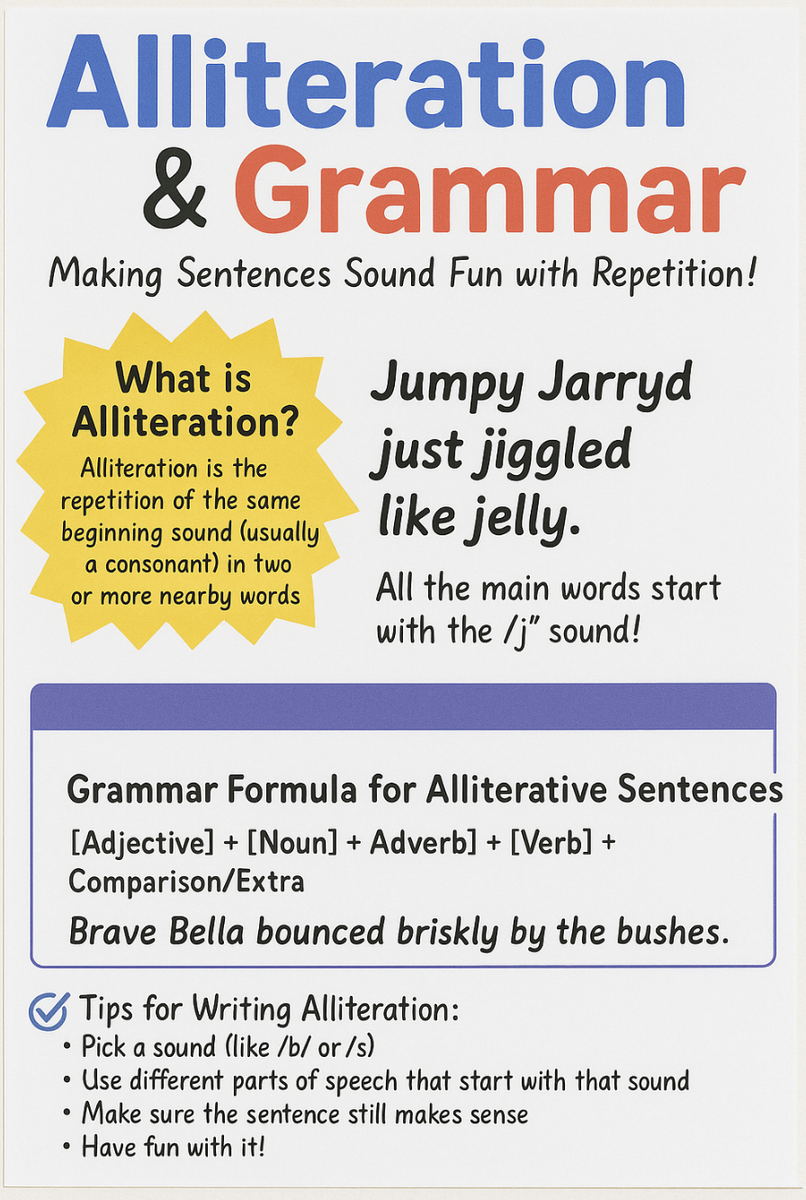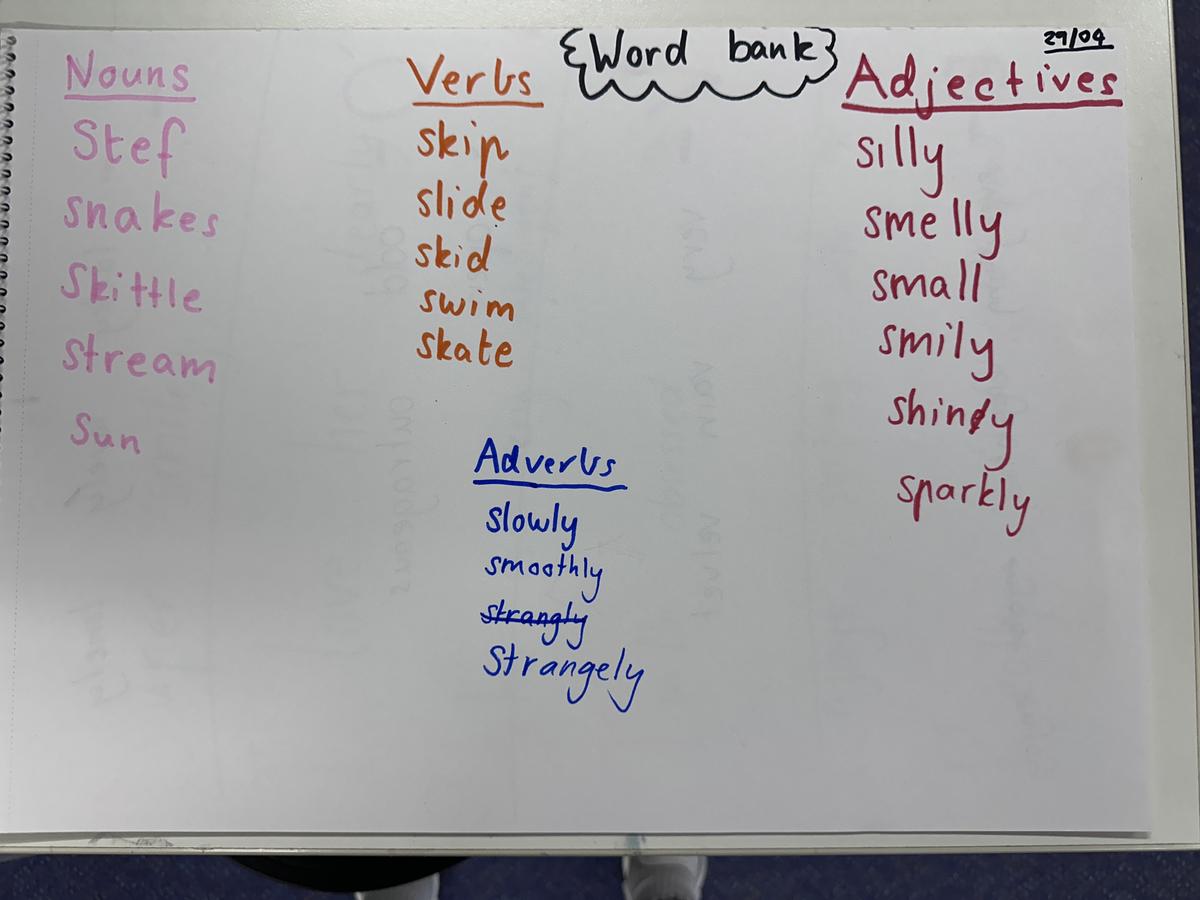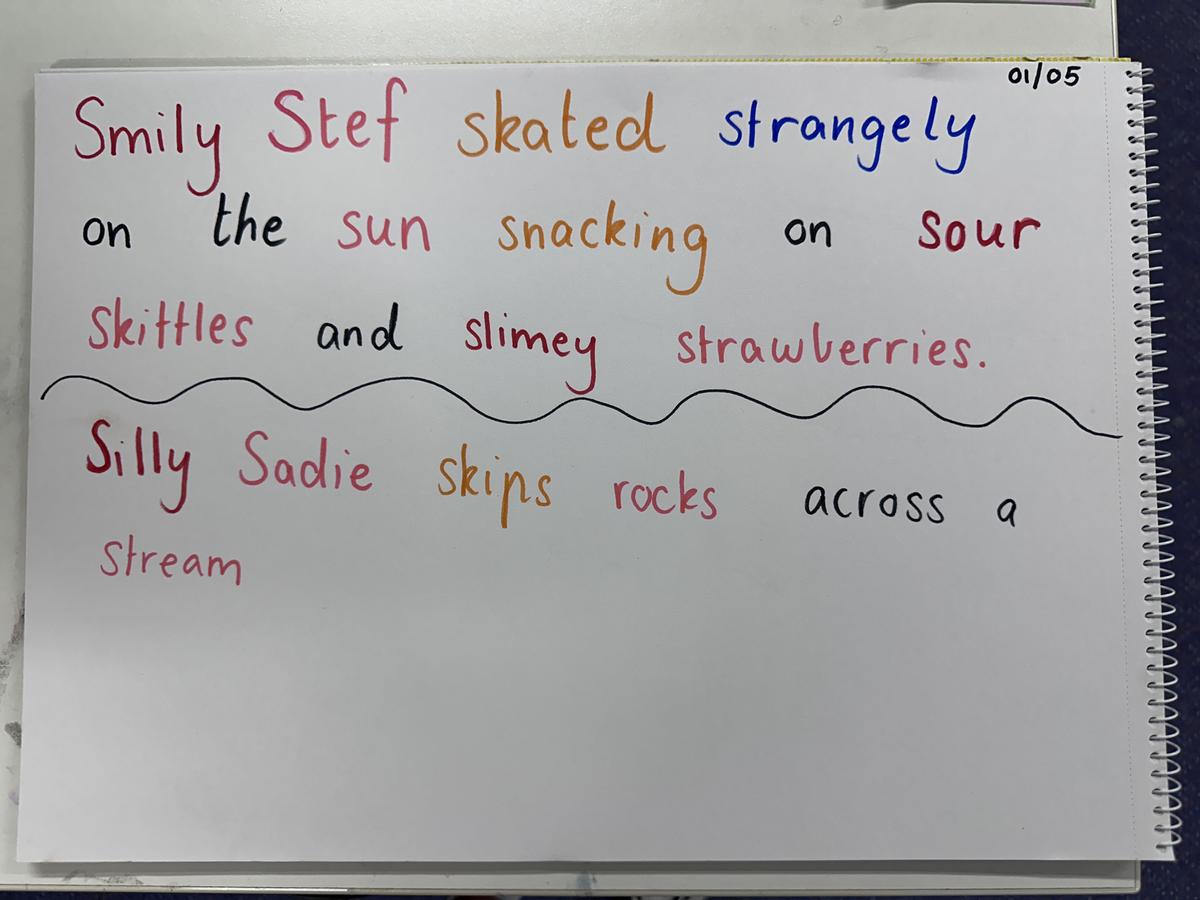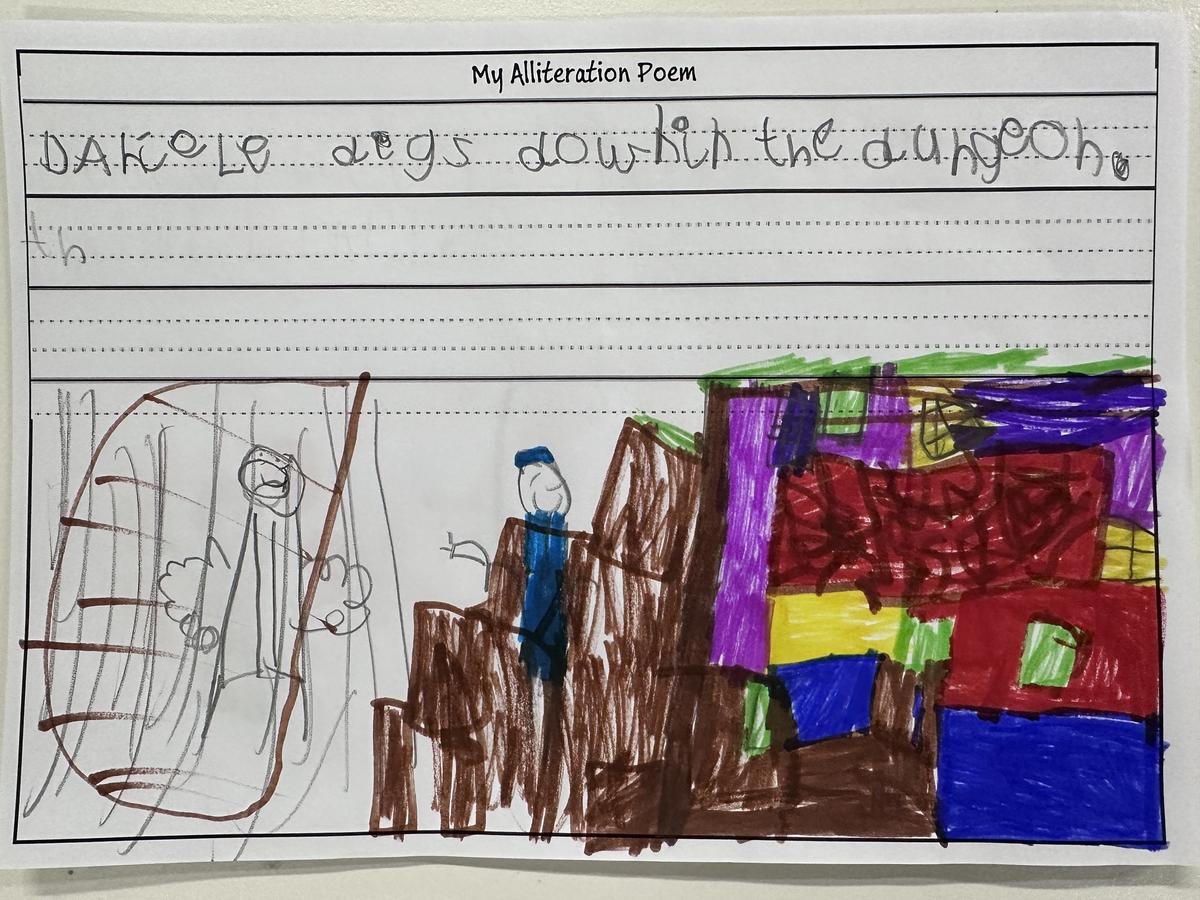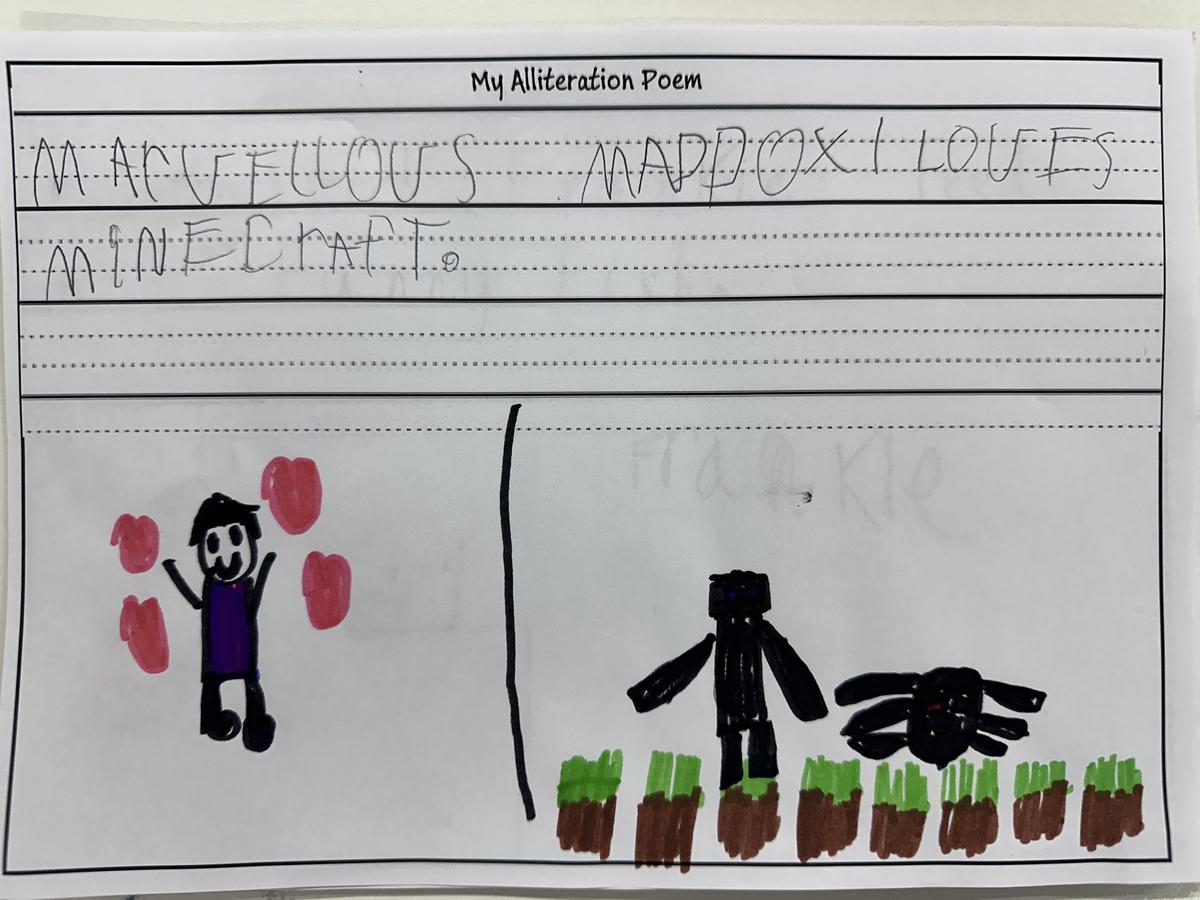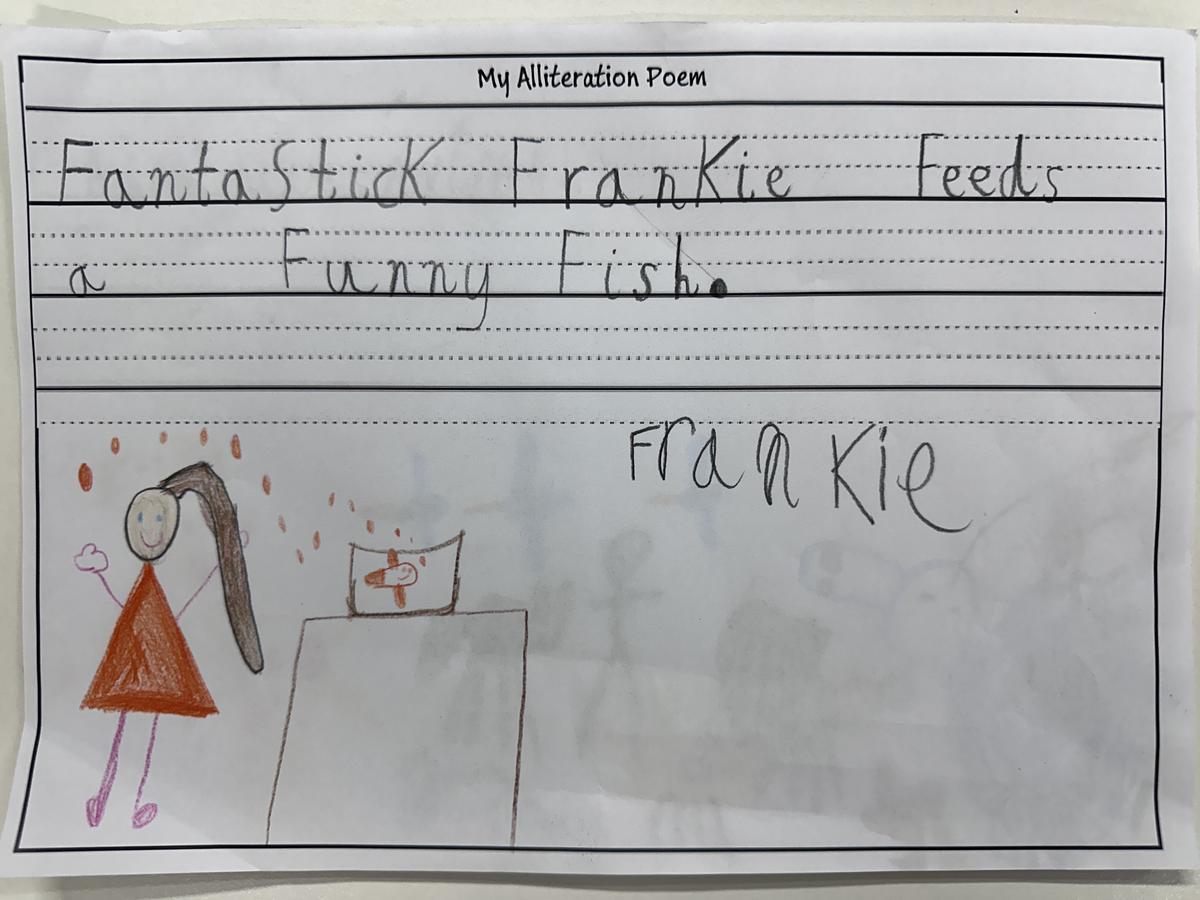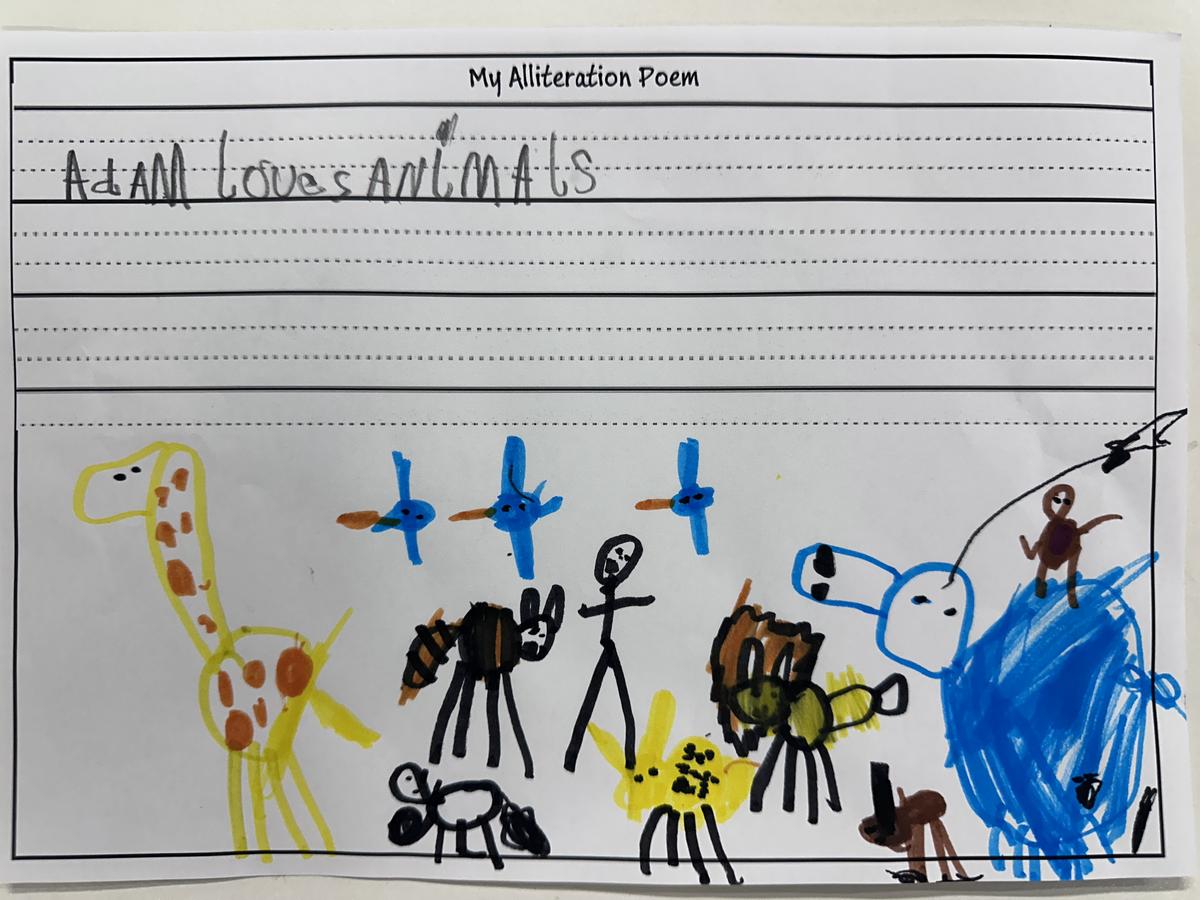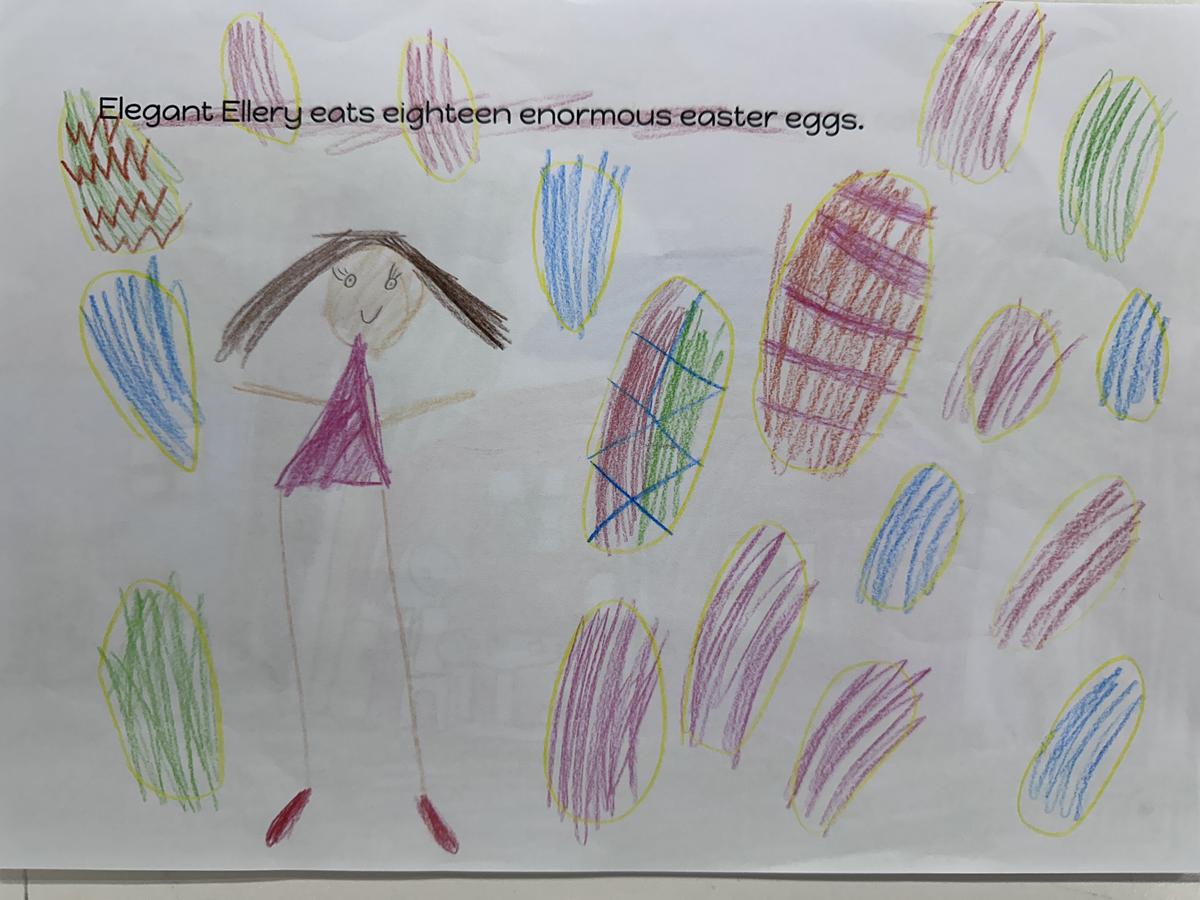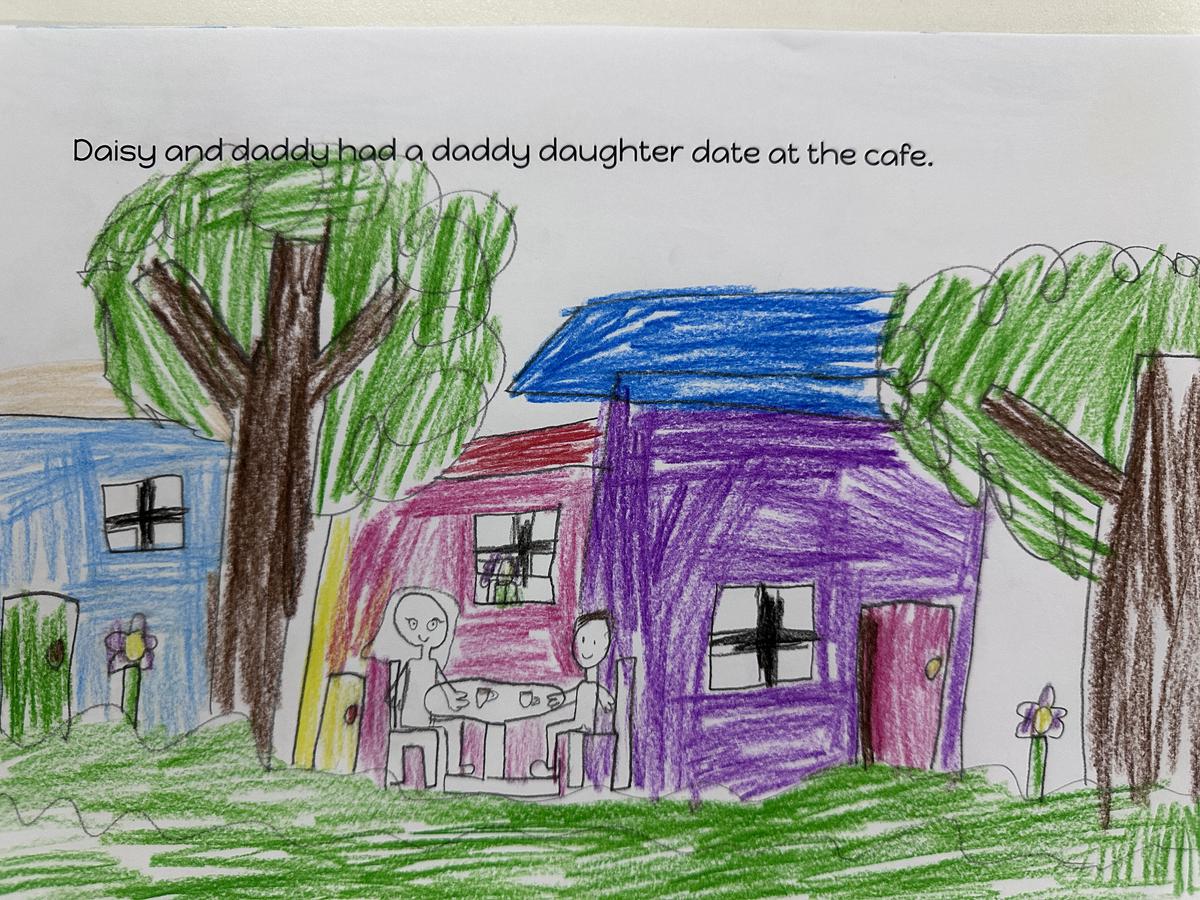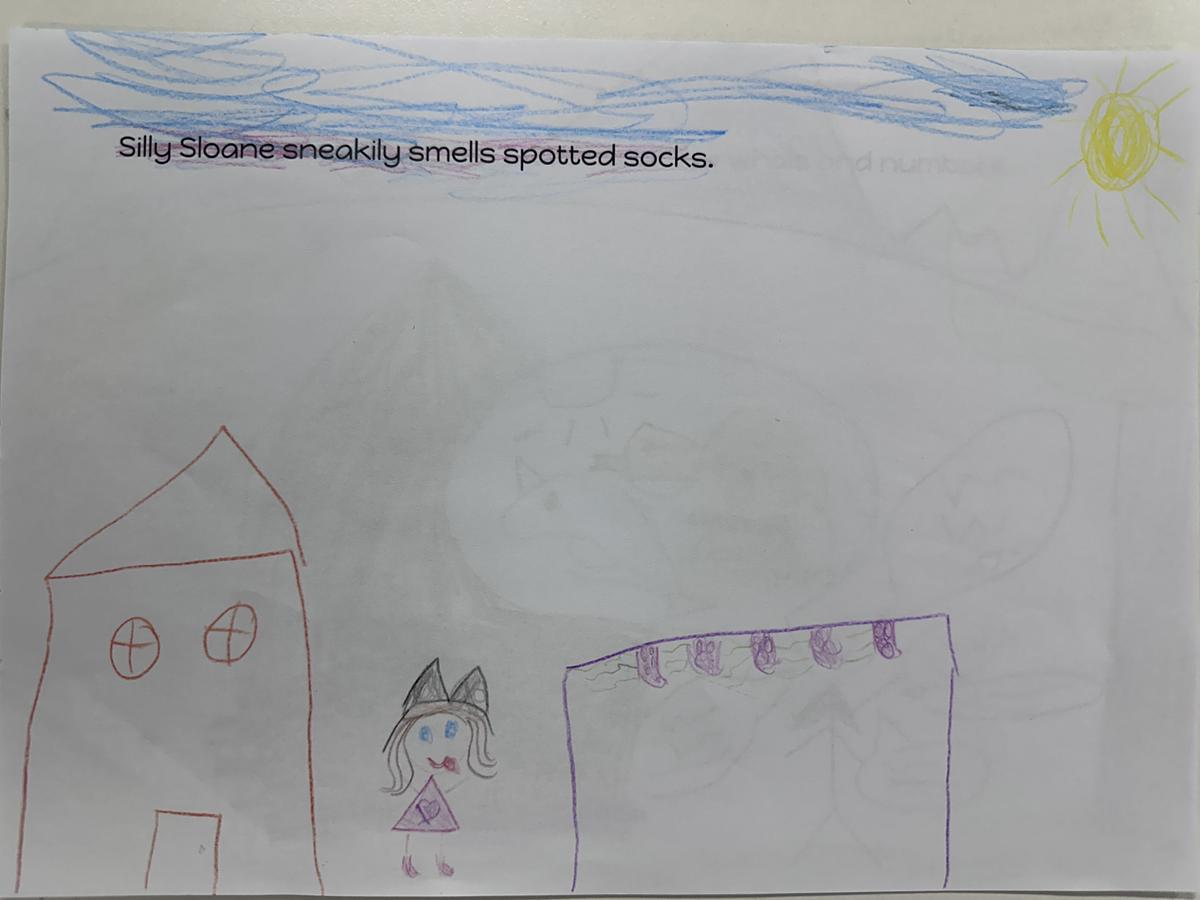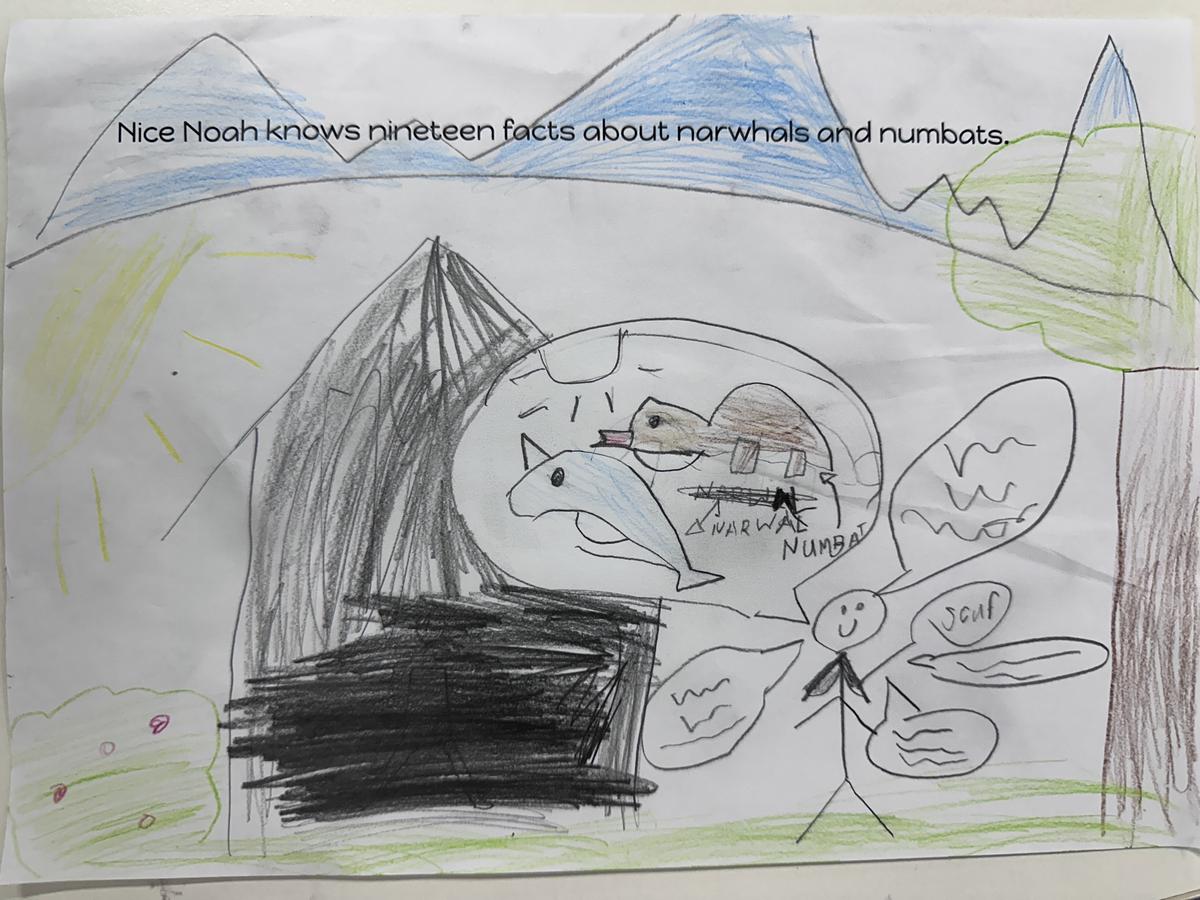Whole:
Students previously brainstormed words that start with their name. The teachers modelled a name that could be used to start brainstorming for their alliteration sentence.
“Stef”
- Snakes
- Skittle
- Skate
- Skip
- Silly
- Smelly
- Strangely
Then we modelled piecing the words together to create parts of the alliteration sentence using the writing formula on the anchor chart.
‘Smiley Stef skated strangely on the sun, snacking on sour skittles and slimy strawberries’
Small: Using their word banks from the previous lesson to start writing an alliteration sentence in their writing books. They use the writing formula on the anchor chart to guide their words when structuring their sentence.
Whole:
Share and Reflect: Some students shared their examples of their alliteration sentences using their names and the words they brainstormed in the previous lesson.
Prompts:
- Alliteration happens when words in a row start with the same sound. For example, listen to this: Peter Piper picked a peck of pickled peppers.
- Do you hear how many words start with the "P" sound? That’s alliteration!
- Let’s try another one: Silly snakes slither smoothly. Can you hear the repeating "S" sound?
- Alliteration makes words sound fun and musical. Now, I want to think of some words that match the starting letter of your name.”
How you might like to continue learning at home:
- Brainstorm words that match the first letter of other family members’ names or their own name again to further develop their vocabulary. (You can further extend from this by organising the words into their word groups: Nouns, Verbs and Adjectives)
- You might also start an alliteration sentence, which shows the pattern of the starting letter and let them write or say a word that can continue the alliteration sentence.
- Example: Say or write “Silly Sarah swam in the…” and see if they write or say a word that fits with the alliteration sentence.
Year 1 Team
Rosanna, Jarryd and Stef
stephanie.lampard@education.vic.gov.au
rosanna.caruso@education.vic.gov.au
jarryd.lamb@education.vic.gov.au


